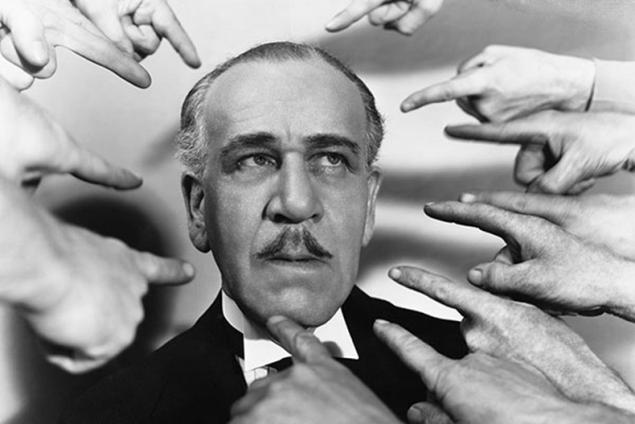641
How to stop responding to criticism
Does it happen with You so that You are covered by a wave of anger when someone criticizes You or Your actions? "Appraiser" literally want to kill? And even if You didn't fall off the aggressive response, and "politely" silent does not mean that critics do not spear pierced right through You...
Criticism refers to any negative assessment of the personality or actions. It is believed that criticism can be not only destructivebut also constructive. Discern their motivation.
To destructive — it's a way of expressing a bad mood. Simply put, the man "tore evil." He needed the object You get "a hot hand".
Constructive – comes from the desire to adjust Your behavior for the better.

In my opinion, no constructive criticism. Why?
Any uninvited intervention, whether it be criticism, evaluation, sarcasm and even "good" advice, is an act of emotional abuse violates the boundaries of the individual. A natural reaction to violence was anger.
On the other hand, the attitude of criticism, as a litmus test, shows Your feeling of self-worth. After all, if You believe in yourself, to any comment as well, just as the opinion of another person. Everyone is entitled to their opinion, but Petya and Vasya more...
But after hearing criticism, You automatically decide that: "If I criticize, then
1. Separate his identity from his behavior and its result.
Problem psychologically dependent people is that the results of their activities tightly glued with the perception of themselves as individuals: "I have Reached the goal – well, wrong – loser!" One of the most important skills that you must master in life is the ability to separate yourself from the result of their activities.
2. See if there's something useful in a critical comment?
Is it possible to use the criticism for its development? Ask clarifying questions: What exactly don't like/annoying/wrong? How, from your point of view, was I supposed to do? What should I do? If there is a grain of truth – take, thanks for the feedback, and adjust their behavior for the better.
3. Remember, You always have the right
Author: Maria Kudryavtseva
P. S. And remember, only by changing their consumption — together we change the world! ©
Join us in Facebook , Vkontakte, Odnoklassniki
Source: maria-kudryavtseva.ru/%D0%BA%D1%80%D0%B8%D1%82%D0%B8%D0%BA%D0%B0/
Criticism refers to any negative assessment of the personality or actions. It is believed that criticism can be not only destructivebut also constructive. Discern their motivation.
To destructive — it's a way of expressing a bad mood. Simply put, the man "tore evil." He needed the object You get "a hot hand".
Constructive – comes from the desire to adjust Your behavior for the better.

In my opinion, no constructive criticism. Why?
Any uninvited intervention, whether it be criticism, evaluation, sarcasm and even "good" advice, is an act of emotional abuse violates the boundaries of the individual. A natural reaction to violence was anger.
On the other hand, the attitude of criticism, as a litmus test, shows Your feeling of self-worth. After all, if You believe in yourself, to any comment as well, just as the opinion of another person. Everyone is entitled to their opinion, but Petya and Vasya more...
But after hearing criticism, You automatically decide that: "If I criticize, then
- I'm bad,
- I am not competent,
- I'm a loser,
- with me something not so
- don't love me".
1. Separate his identity from his behavior and its result.
Problem psychologically dependent people is that the results of their activities tightly glued with the perception of themselves as individuals: "I have Reached the goal – well, wrong – loser!" One of the most important skills that you must master in life is the ability to separate yourself from the result of their activities.
2. See if there's something useful in a critical comment?
Is it possible to use the criticism for its development? Ask clarifying questions: What exactly don't like/annoying/wrong? How, from your point of view, was I supposed to do? What should I do? If there is a grain of truth – take, thanks for the feedback, and adjust their behavior for the better.
3. Remember, You always have the right
- to say that You are irritated by criticism of the interlocutor: "When you're doing me a note, I'm mad",
- to end the conversation: "I'm not going to discuss this topic,"
- accept, but do not recognize the remark: "I have heard your opinion on this issue." published
Author: Maria Kudryavtseva
P. S. And remember, only by changing their consumption — together we change the world! ©
Join us in Facebook , Vkontakte, Odnoklassniki
Source: maria-kudryavtseva.ru/%D0%BA%D1%80%D0%B8%D1%82%D0%B8%D0%BA%D0%B0/
If you can't love — at least listen to
The electric candles with their hands: 10% of the capacity of electric heater of 500 W!























